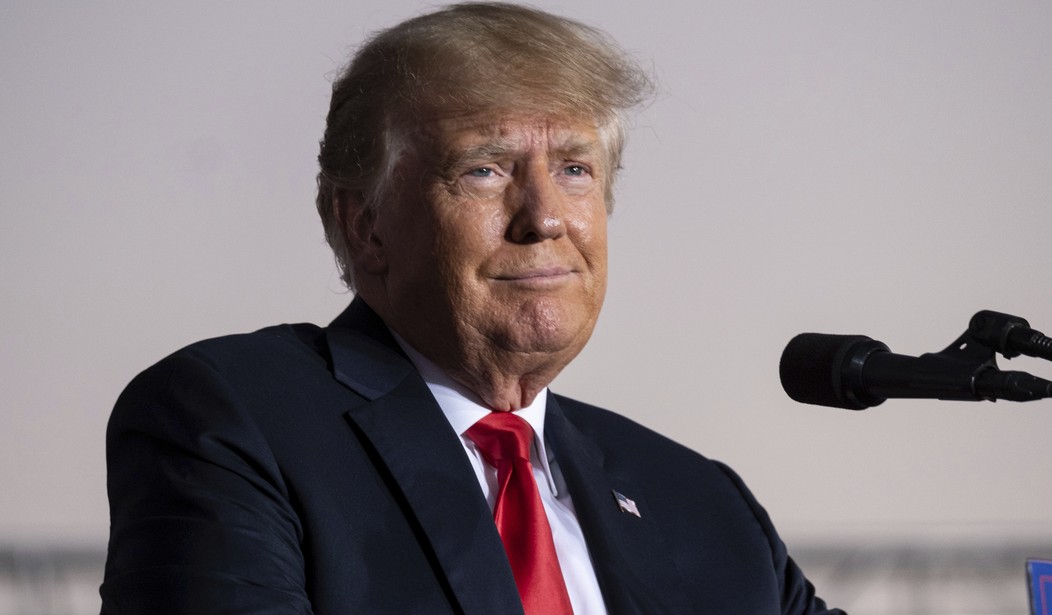Seventeen counts in the indictment, seventeen guilty verdicts returned by the jury. The defendant? Two units within the Trump Organization — the Trump Corporation and Trump Payroll Corporation. At stake: the reputation of a former president and real-estate dynasty.
In reputational terms, it’s potentially devastating. In terms of actual legal and financial impact … much less so. First, however, prosecutors could at least celebrate a win, even if it doesn’t change much in New York or Florida:
A jury in New York has found two Trump Organization companies guilty on all charges of tax fraud and other crimes. The verdict on 17 criminal counts was announced in court Tuesday afternoon.
The jury began deliberations Monday around noon, after testimony and closing arguments wrapped up in the six-week trial.
The two Trump Organization companies, called the Trump Corporation and Trump Payroll Corporation, were indicted in July 2021, along with the company’s longtime chief financial officer, Allen Weisselberg, and accused of using a variety of methods to reduce payroll liability from executive salaries through untaxed bonuses and luxury perks worth millions. …
Prosecutors said Weisselberg was one of several executives who received large annual bonus checks, signed by Trump and logged as if they were payments to independent contractors, and luxury perks such as high-end apartments, private school tuition and cars that were not reported as salary.
If that were the case, why not indict Trump himself? Prosecutors certainly hoped to do just that, but Weisselberg never flipped on Trump, although he did testify against the Trump Org defendants. As CBS News recounts, prosecutors spent a lot of time at trial arguing that Trump himself was aware of the fraud, while the Trump Org lawyers argued that Weisselberg and others structured the fraud themselves and Trump unwittingly signed the checks unaware of the fraud. Prosecutors never did get any testimony or evidence that settled that question — and so settled for the conviction against Trump’s businesses instead.
Sentencing will take place next month. So who goes to jail? No one, actually. What happens to the Trump Organization and its now-convicted units? It has to write a check, and relatively speaking, not much of one:
The maximum penalty the company could pay is $1.62 million, a drop in the bucket for the Trump Organization, which often raked in hundreds of millions of dollars in revenue per year during his presidency. The company has spent more money paying its lawyers to fight the case.
The size of the potential punishment underscores that while the tax fraud conviction has forever tarred the Trump Organization’s name — and branded it a felonious enterprise — the company is facing far less than a financial death sentence. And it helps explains why the company was unwilling to plead guilty.
Okay, so the overall Trump family enterprise will not get impacted much by this conviction. What about the two specific units? Do they have to get closed? Not really, the New York Times reports, but Trump may decide to close them anyway just to distance himself from the scandal. And it won’t be hard to do:
It is unclear what changes Mr. Trump might make to the company in the wake of the verdict. The Trump Organization is a collection of more than 500 corporate entities, only two of which were on trial.
It is possible that he could shutter those corporations — the Trump Corporation and the Trump Payroll Corp. — without much effort. …
A company, of course, cannot be imprisoned, and the two convicted Trump corporations are not publicly traded. As such, there are no financial regulators to punish them or public investors to flee from them.
The Trump Corporation and the Trump Payroll Corp. are also not central to Mr. Trump’s moneymaking enterprise.They largely perform back-office functions, employing and paying top executives, so they do not hold any loans, liquor licenses or other privileges that might slip away in the wake of the conviction.
At times, this effort has been likened to the Treasury’s strategy in taking out Al Capone via tax fraud rather than racketeering charges. This outcome, however, is more like convicting a contractor working for Capone’s accountant. Or maybe better put, convicting a contractor working for Joe Kennedy’s accountant during Prohibition.
That doesn’t mean crimes didn’t get committed, or that the prosecution shouldn’t have taken place. The jury has answered both of those issues rather firmly with the convictions. The issue here is the way in which the investigation took place, the expectations raised by both the Manhattan DA’s office and media outlets as to its potential outcomes, and a sense that all of these entities pursued this as a means of political punishment rather than objective justice. They all wanted to “get Trump,” and this case never really had that potential in the first place. And that is why the potential for reputational damage will likely never get realized, no matter how the media or prosecutors tout the outcome.
Trump has other legal issues on the horizon that likely command much more of his attention than this sideshow. On this one, he’ll write the check and move on, even if his company fights the conviction on appeal.







Join the conversation as a VIP Member